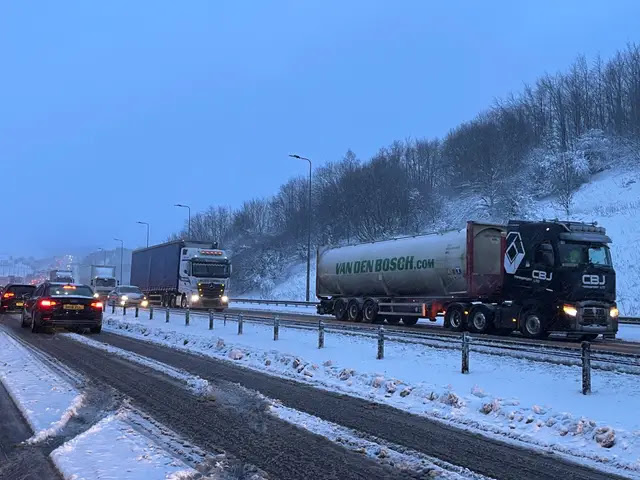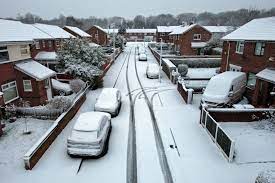
Drivers tell of never-ending tailbacks on snowbound M62 road
The
heavy snowfall that caused widespread travel disruption in the UK, particularly
on the M62, was a stark reminder of the impact of extreme weather conditions on
transportation infrastructure. The incident highlighted the challenges faced by
transportation authorities in keeping roads, railways, and airports open and
operational during extreme weather events. In addition to the stranded drivers
on the M62, the incident caused significant disruptions to the transportation
network across the country. Flights were also affected, with several airports
closing their runways temporarily to clear snow and ice. Passengers were left
frustrated and angry as they faced long delays and cancellations, often with
little information from transportation operators. The incident also highlighted
the importance of individual responsibility during extreme weather events. The
actions of some drivers, who illegally used the hard shoulder and closed lanes,
worsened the congestion on the M62 and made it more difficult for emergency
services to reach stranded drivers. In contrast, the actions of mountain rescue
teams who came to the aid of stranded drivers showed the importance of
community and public service during times of crisis.
The
incident also reduced the need for effective communication and coordination
between transportation authorities, emergency services, and the public during
extreme weather events. The Met Office had issued several amber weather
warnings prior to the heavy snowfall, but many drivers were caught off guard
and unprepared for the conditions. The incident served as a reminder of the
importance of staying informed and prepared during extreme weather events, and
the need for transportation authorities to communicate effectively with the
public to ensure their safety.
Overall,
the incident on the M62 highlighted the vulnerability of transportation
infrastructure to extreme weather conditions and the importance of planning,
preparation, and collaboration in mitigating the impact of such events. As the
frequency and severity of extreme weather events continue to increase due to
climate change, it is crucial that transportation authorities and the public
work together to ensure the resilience and sustainability of transportation
networks.
Mountain
rescue teams were called to assist some drivers stranded overnight on the M62,
with lorries broken down all over the road across all lanes. Conditions were
particularly difficult between Manchester and Leeds.
While
the snow has cleared, a number of yellow warnings about hazardous icy
conditions remain in place across Wales, Northern Ireland, the Midlands and
north of England. In the north and west of Scotland, a warning of snow and ice
is in place until 9am on Saturday.
What actually caused travel disruption in the UK and how were different modes of transportation affected?
The situation was exacerbated by the actions of
some drivers who were illegally using the hard shoulder and closed lanes,
overtaking other vehicles and becoming stuck in fresh snow. The National
Highways North-West told that overcrowding on the eastbound roadway between
Rochdale and Saddleworth stretched to around eight miles at one point.
Mountain rescue teams were called to assist
some drivers stranded overnight on the M62, with lorries broken down all over
the road across all lanes. Conditions were particularly difficult between
Manchester and Leeds.
It is important for individuals to take
responsibility for their own safety during extreme weather events by staying
informed and prepared. This includes keeping up to date with weather warnings,
avoiding unnecessary travel if possible, and ensuring that vehicles are
equipped with appropriate equipment such as snow tires and chains. It also
means following the advice and guidance of transportation authorities and
emergency services, and avoiding any actions that could worsen the situation
for others. By taking these actions, individuals can help to reduce the impact
of extreme weather events and ensure the safety of themselves and others. While
the snow has cleared, the heavy snowfall caused disruption to different modes
of transportation across the UK. Commuter trains between Manchester, Sheffield,
Leeds, York, and Liverpool were canceled due to the weather, and trains were
suspended between Manchester and Sheffield due to a fallen tree. The rail
network was severely affected by the conditions.
In summary, the heavy snowfall caused
widespread travel disruption in the UK, with drivers stranded on the M62
motorway for hours, and transportation systems such as trains and airports
severely affected by the weather conditions.



